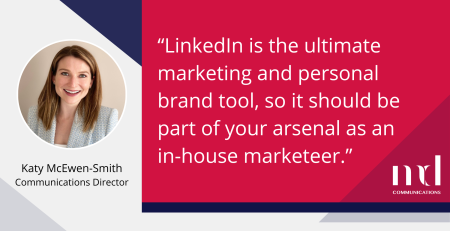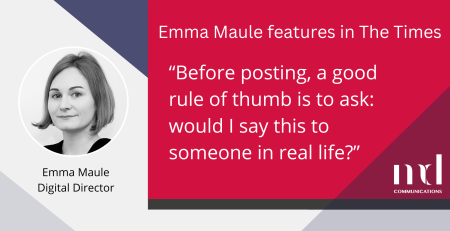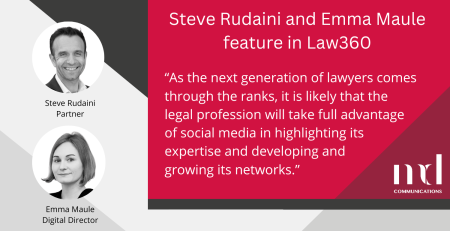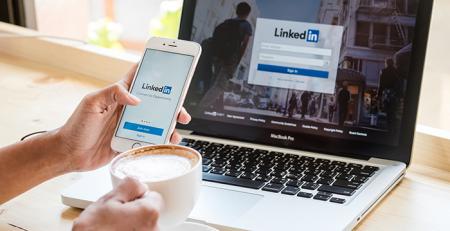The question of policing social media accounts held by solicitors and barristers has recently been in the news when David Harris was fined by the Bar Standards Board for tweets posted on his @Geeklawyer account earlier this year. The fine of £2,500 was for 19 tweets that he posted that – rather unwisely – made reference to bribing judges and negligence in his own work and included some swearing. The justification for taking the sanction was provided by the Board Standards Board on the basis that the tweets were “likely to diminish public confidence in the legal profession or the administration of justice or otherwise bring the legal profession into disrepute.”
Whilst this might encourage some barristers to steer clear of social media, in fact it should simply be a useful indication of what not to do when using social media accounts in a legal context. The informality of social media brings with it the risk of putting too much personality into what should really be a professional Twitter or Facebook account, but this is easily avoided with a strong social media policy. Swearing, indicating negligent actions or bribery would all be risky professional behaviour in the ‘real world’ and so ensuring that a social media account doesn’t overstep these boundaries really only requires a practical approach based on usual professional principles.
The danger of decisions such as this is of course that the risks of using social media become too overblown and barristers (and solicitors) begin to retreat from the public domain. This would be a mistake as for many chambers – particularly with the introduction of Public Access – social media is very much the new marketing frontier and offers a huge number of opportunities to reach new clients, to publicise expertise in a certain practice area and also to trigger discussion on important current issues. Not having a presence on social media closes a door for most chambers and also narrows the scope of debate that social media is the ideal forum for; it would be a shame if decisions such as these put those in the industry off from using channels such as Twitter and Facebook to boost their own profiles and that of the sector as a whole.
Social media is also becoming a key recruitment channel and, despite the entrenched systems within the Bar, is predicted to infiltrate this part of the legal profession in the same way – it is another way for individuals, and chambers, to establish a profile that is attractive to a potential alliance and to show knowledge of current issues, as well as publicising experience in a much more fluid and far reaching way than a website. There are also unique networking opportunities for barristers and the chance to make the profession much more accessible and friendly, something that is going to become more and more crucial as new players enter it.
So, although the recent fining of @Geeklawyer might be alarming for some, it really is just the legal profession finding its way in the new field of social media. Whilst the risk of running into trouble with Twitter and Facebook should be mitigated against, the rewards of getting social media right for the Bar are just too great to ignore.











